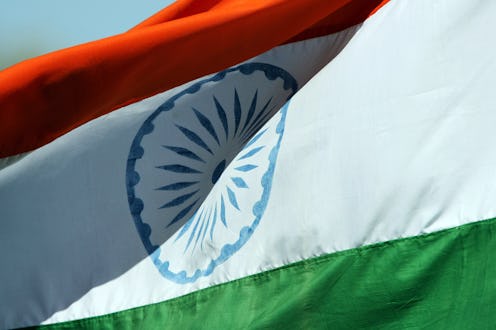Life
These Dating Sites Want To Know Your Blood Type?!
These days, we’re used to sharing details like gender, age, and even what we look like after a workout when it comes to online dating. But what if you were asked to share your blood type on a website like OkCupid — and not in a True-Blood-fantasy-come-to-life kind of way? According to Forbes magazine, matchmaking sites in India are listing personal details like blood type, annual income, and even whether or not someone is HIV positive (and we thought #aftersex selfies were going too far).
It doesn’t stop there either. Marriage sites like Jeevansathi.com and Shaadi.com allow for users to search by religion, mother’s tongue, and community/caste. I repeat, you can search for your soul mate by their caste in a country where caste-based discrimination is illegal.
Oh, it gets weirder: most of the profiles aren’t even created by the people they feature. They are created by their family members. According to Forbes, 30 percent of listings on Shaadi.com came from parents and siblings of the grooms and brides-to-be. Yikes!
These issues are only the tip of the online-dating-in-India iceberg. There are numerous other factors that would make anyone on this side of the globe want to run and hide from their laptop should they be asked to share them — don’t even get me started on the issue of privacy. So why is it so different over there in India than here in the states? Does sharing your blood type, or letting your mom make a dating profile for you seem that out of the ordinary in India?
Kevin Lewis, an assistant professor of sociology at UC San Diego who has studied dating sites, explains to Forbes that it’s a matter of national differences. He says that while we may value personality-related details (e.g. long walks on the beach and whether or not someone likes cats), these sites understand that their target audience is looking for something else when it comes to marriage.
“Indian dating sites will meanwhile try to cater to whatever beliefs about compatibility are popular in India – which likely have more to do with religion, caste, etc. than in the United States… and also where providing certain types of information (e.g. birthdate, HIV status) may not scream ‘invasion of privacy!’ in the same way it does to Americans.”
Although we might think India’s version of Match.com is strange and twisted, I’m sure some of our online dating habits are even more strange and more twisted to them. Despite cultural and religious differences, the Internet is still the Internet, and we all need to consider our privacy — and in some cases, the privacy of our family members — before diving into the online dating pool.
